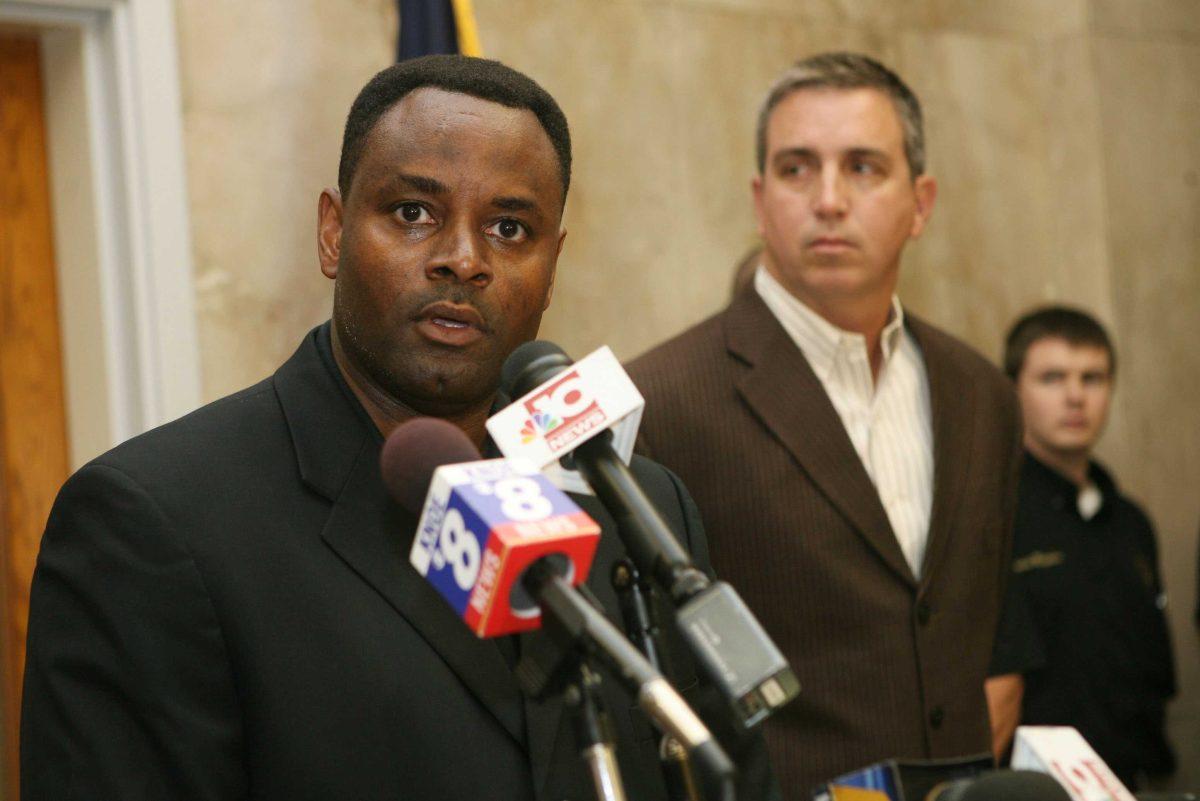I’d hate to become one of those Al Sharpton types, the type who believes he is a freedom fighter for the black cause and who wrangles about the most trivial of altercations among African Americans and other groups.
But sometimes, it seems like I might be heading down this path.
On Oct 21, Louisiana native Sharmeka Moffit, 20, called police claiming she had been set ablaze by three men wearing hooded attire at a park in Winnsborro, La. She said the men also sprayed her car with the letters “KKK” and a racial slur.
On Tuesday, however, Franklinton Police reported the incident may have been fabricated by Moffit, stating her fingerprints were linked to the cigarette lighter and lighter fluid was found at the scene of the incident.
The media went wild. People from around the state and country, including media personalities, blasted Moffit. They called her names ranging from liar to deranged to foolish.
Some older people I spoke with, though, thought the facts of this story were a bit sketchy. Maybe Moffit was crazy or maybe this was a cover-up to protect white supremacist men in a rural town about 60 miles from Jena, the scene of another racially charged conflict back in 2006 and 2007.
Though much information is still desired, this story is a classic example of the distrust between older African Americans, the media and law enforcement.
The media refers to mass communication in its entirety, including newspapers, magazines, television, radio and social websites such as Twitter and Facebook. According to Umar Bey, author of “We are The Washitaw,” this influential and inescapable entity maintains negative stereotypes attributed to African Americans.
“The media has been destroying the image of people of color, particularly black people, since it came into existence. Look at the first 11 minutes of the nightly news,” Bey said, referring to the usual crime segment at the beginning of the program.
Bey added that the media is a complex propaganda distributor fed to the masses.
Though I disagree with some of Bey’s views, the media does distort African American images.
We rarely hear of the contributions of black inventors and intellects to American society. The popularity of black entertainers and athletes trumps that of scientists, astronauts, professors and other intellectual people of color. We see more of Lil Wayne, Nicki Minaj and Lebron James, rather than the likes of President Obama, Cornel West, and Saundra McGuire.
We idolize the ones with the gold chains, but sometimes these entertainers sport the other types of chains –as witnessed by the recent arrests of former LSU football players.
The distrust between African Americans and law enforcement in this country goes back to the time of segregation when police helped white supremacists maintain Jim Crow Laws. In the South, many of the law enforcers themselves were part of these white supremacist groups who tortured black communities.
In some instances, such as in Bogalusa, African Americans had to take up arms to defend their communities — a role that should have been played by law enforcement.
Even still, cases such as Emmett Till and Rodney King remind the community of the one-sided hand of justice in this country. This may be the reason why black parents go to lengths to sternly discipline their children so they would stay out of the legal system.
I can vividly remember my frequent whoopings from my mother. She said “I do this because I love you,” and then went on to punish me. Child abuse? Maybe. Successful implementation of discipline? Yes.
Today, people of color have more of a presence in media than ever before. Personalities such as Oprah Winfrey and Nelson Mandela are adored across racial lines. The trust in the African American community for the media is better than it has been in the past.
But in the case of law enforcement, I see no love gained. It is not a white and black issue, but an issue of prosperity.
As long as there are have and have not’s, with many of the have not’s being blacks, law enforcement will continue to be an enemy to the black community.
In capitalist America, we are to love and pursue money. If your education is mediocre and you lack the discipline to work 9 to 5, then get-rich-quick schemes become more appealing. Too often, members of the black community fall victim to this quest.
As the saying goes, “Never bite the hand that feeds you.”
But sometimes, it is necessary to examine the hand and ask where the food comes from.





